| > James Ramsay MacDonald | > Sir Oswald Mosley |
| > Lady Londonderry | > Maxwell Knight |
| > Major Desmond Morton | > Rosa Rosenberg | > William Joyce |
James Ramsay MacDonald
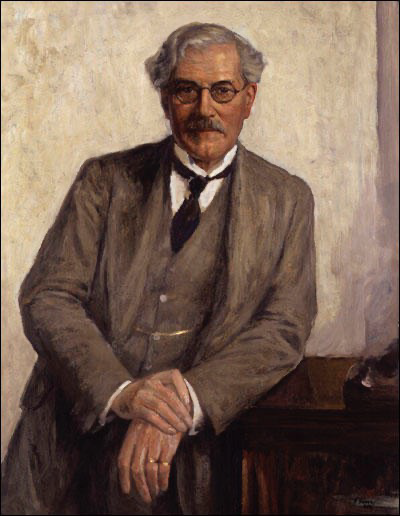
James Ramsay MacDonald, by John Lavery 1931
One of the founders of the Labour Party and its first Prime Minister, he came to be reviled as a traitor by the party when in 1931 he formed a National Government with the Conservatives. He felt the isolation from his erstwhile political friends keenly, lamenting in his diary that the Tory politicians he was obliged to rely upon were ‘an odd lot of colonels and sycophants repulsively vulgar’, that he had ‘never left my Socialism,’ and that he longed for a time when there would no longer be any need for a coalition to deal with the country’s economic crisis. His critics accused him of being too attached to the prestige of his office and of becoming a great snob with a fondness for aristocratic ladies. After the death of his wife, Margaret, he conducted a long affair with the daughter of an earl, and enjoyed a close platonic friendship with the wife of a marquis. ‘He was’, social reformer, Beatrice Webb, recalled, ‘absorbed in the social prestige of his ex-premiership enhanced by a romantic personality.’ And yet ‘a fundamentally simple man’ – according to diplomat, Harold Nicolson – under all ‘his affectation and vanity there is a core of real simplicity.’ He enjoyed hymns sung by a good choir and the songs of Scottish music hall entertainer, Harry Lauder, the books of R.L. Stevenson, the company of his children, and a good Scottish High Tea. He was incurably addicted to politics but he hated politics too, and often escaped in the course of his premierships to his simple family home in Lossiemouth on the north east coast of Scotland, the place of his birth and his humble upbringing.
Sir Oswald Mosley
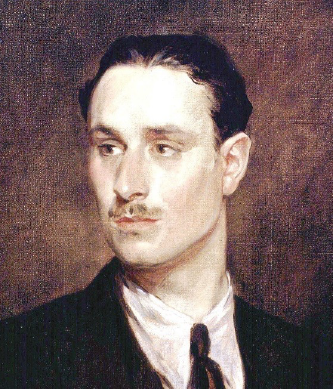
Sir Oswald Mosley
Mosley is known principally now as the leader of the British Union of Fascists – the Black Shirts – but in 1929 he served as Chancellor of the Duchy of Lancaster in MacDonald’s Labour government, with special responsibility for solving growing levels of unemployment. His proposals for a programme of public works and the nationalisation of important industries was rejected by the Cabinet but earned the praise of economist John Maynard Keynes. Thirty years later, Labour Cabinet minister, Dick Crossman, described it as ‘brilliant’ and a ‘whole generation ahead of Labour thinking.’ Mosley resigned from the government and then from Labour to form his own party. ‘Some people get things too easily and they are ruined,’ MacDonald observed after receiving Mosley’s letter of resignation. ‘The test of a man’s personality is his behaviour in moments of disagreement: in every test he failed.’ They were close for a time, and it was to Mosley that MacDonald turned when his mistress, Frau Forster, approached him for money. No doubt he presumed a well known philanderer like Mosley would know what to do in such a case.
Lady Londonderry
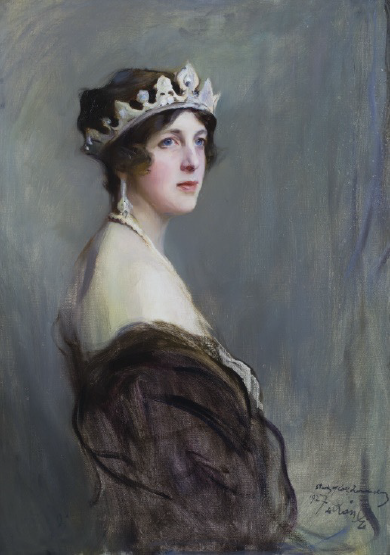
Lady Londonderry
A famous Conservative hostess, Edith, Marchioness of Londonderry’s close friendship with Ramsay MacDonald was a source of great gossip and speculation in society circles in the 1930’s. They met at a Buckingham Palace dinner in 1924 and discovered they shared an interest in Gaelic myth and folklore and enjoyed each other’s company. Much to the disgust of his former Labour colleagues, she was often at his side at National Government receptions, and he was a frequent guest at her literary parties. Mosley observed that their friendship was ‘linked only by her curiosity and his snobbery.’ She encouraged, flattered, cossetted him, and he opened his heart to her in his letters. But MacDonald’s biographer, David Marquand, suggests his subject was putting on a performance, that she was like ‘a fairy princess, remote in her castle high,’ that his emotions were not deeply engaged, and their relationship was merely a diversion from the cares of state.
Maxwell Knight
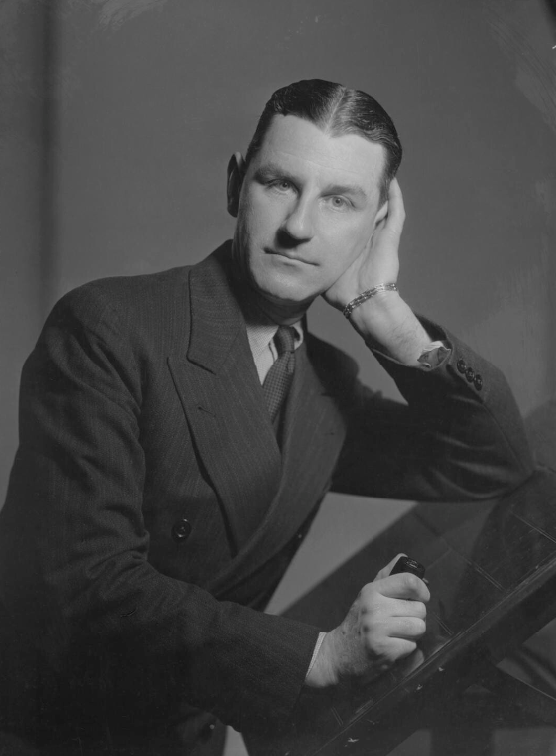
Maxwell Knight
One of MI5’s greatest spymasters, and one of its greatest eccentrics. A host of popular television and radio natural history programmes in the 1940s and 1950s, and the author of many book on the subject, his love of animals was matched only by his passion for secret intelligence work. He is credited with infiltrating agents into both the British Communist Party and a network of Nazi sympathisers in the 1930s and 1940s; of anticipating Soviet infiltration of the intelligence services during the Cold War; and with encouraging the recruitment of women as agents by the Security Service (MI5). Nor was he afraid to get his own hands dirty. As an active member of the British fascist movement in the 1920s he was involved in break-ins at Communist Party offices, a kidnapping, and of acts of violence at public meetings. At the same time he was reporting on both the activities of his fascist friends and his communist enemies to MI6 officer, Desmond Morton. One of his most trusted agents described him in her memoir as a virulent anti-communist, an anti-Semite and a homophobe – but that may have been another of his disguises, since the same source believed he was a homosexual.
Major Desmond Morton
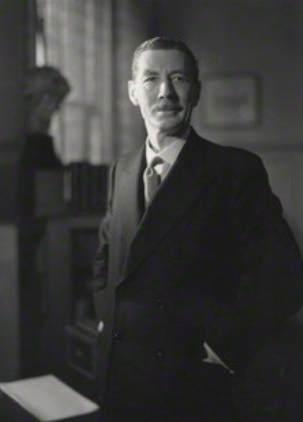
Major Desmond Morton
Morton was the MI6 intelligence officer who supplied Winston Churchill with classified information on Nazi Germany’s programme of rearmament during his wilderness years in the 1930s; and during the war he served as the Prime Minister’s personal assistant in Downing Street. But in the 1920’s it wasn’t the rise of fascism that occupied most of his time. ‘I have only one enemy; International Leninism,’ he declared. In pursuit of that enemy he ran a network of agents, gathering intelligence and subverting Communist Party activities in Britain. Morton seems to have drawn little distinction between democratic socialism and communism, since he was one of the intelligence officers involved in the Zinoviev forgery affair. Morton authenticated the forgery and may well have played a part in leaking its contents to the Conservative Party and the press. His own testimony on this, and the nature of his relationship with ‘Agent M’ – Maxwell Knight – is evasive, if not to say, down right mendacious. At least one senior police officer – the head of Scotland Yard’s Special Branch – suspected Morton of working in the Conservative interest and against Ramsay MacDonald and the Labour Party.
Rosa Rosenberg
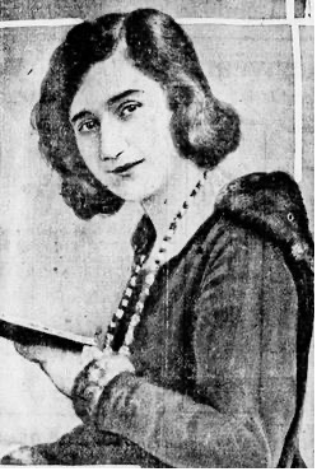
Rosa Rosenberg
Ramsay MacDonald appointed her as his private secretary in 1923 and she served in Downing Street in that capacity in all three of his administrations. Indefatigable, fiercely loyal and protective, she acted as a channel between the Prime Minister, Labour Party members of parliament and the press. The reporters she dealt with from day to day dubbed her ‘Miss Rosa of Number 10.’ She caused quite a stir on the Prime Minister’s visit to America in 1929, where the newspapers were intrigued by the idea of a young Jewish woman working at the heart of government. ‘Never in the 150 years of American history has any President had a woman secretary in an capacity at all comparable,’ the Pittsburgh Post-Gazette noted. ‘The finest thing about my job,’ she explained to reporters, was working for a party and a man who recognised the role women could play in political life, because women were able to ‘wield an enormous influence for good.’
William Joyce
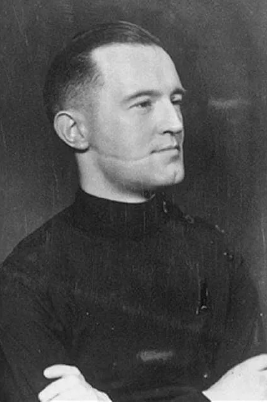
William Joyce
A close friend and fascist associate of Maxwell Knight’s, Joyce was a clever, amusing, charismatic Irish-American – and a bundle of very unpleasant prejudices. Above all, he hated communists and he hated Jews, and he blamed a Jewish communist for slashing his face with a razor at a political meeting his squad of bully boy fascists was intent on breaking up during the 1924 election. In the 1930’s Joyce became a leading light in Oswald Mosley’s British Fascist movement, and a great admirer of both Hitler and Mussolini. He continued to enjoy a close association with Maxwell Knight and worked as his agent inside the movement for a time. Knight tipped him off on the eve of the Second World War that he was going to be arrested and he escaped to Germany. ‘Lord Haw-Haw’, as he became known, spent the war broadcasting Nazi propaganda back to Britain; and when it came to an end he was hanged as a traitor.
